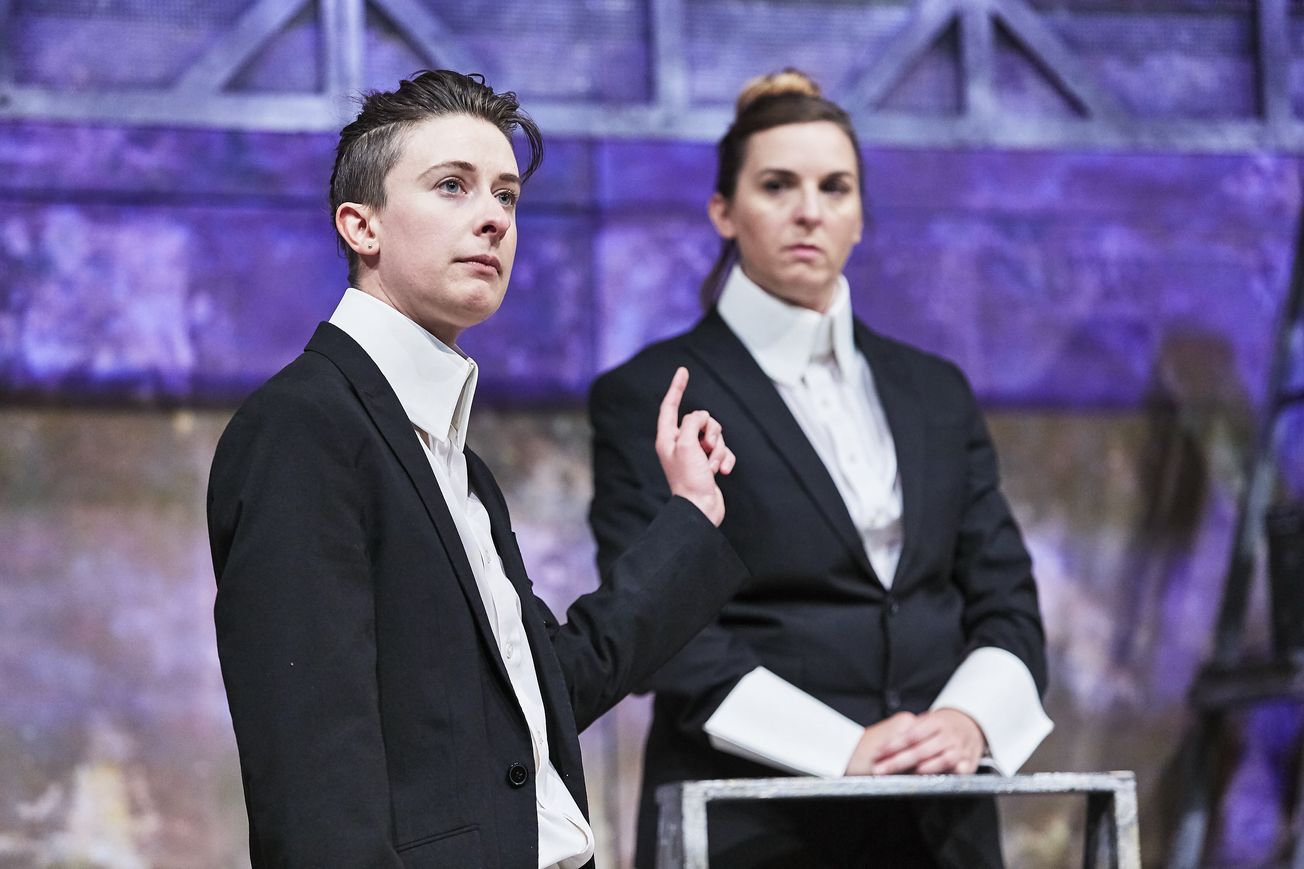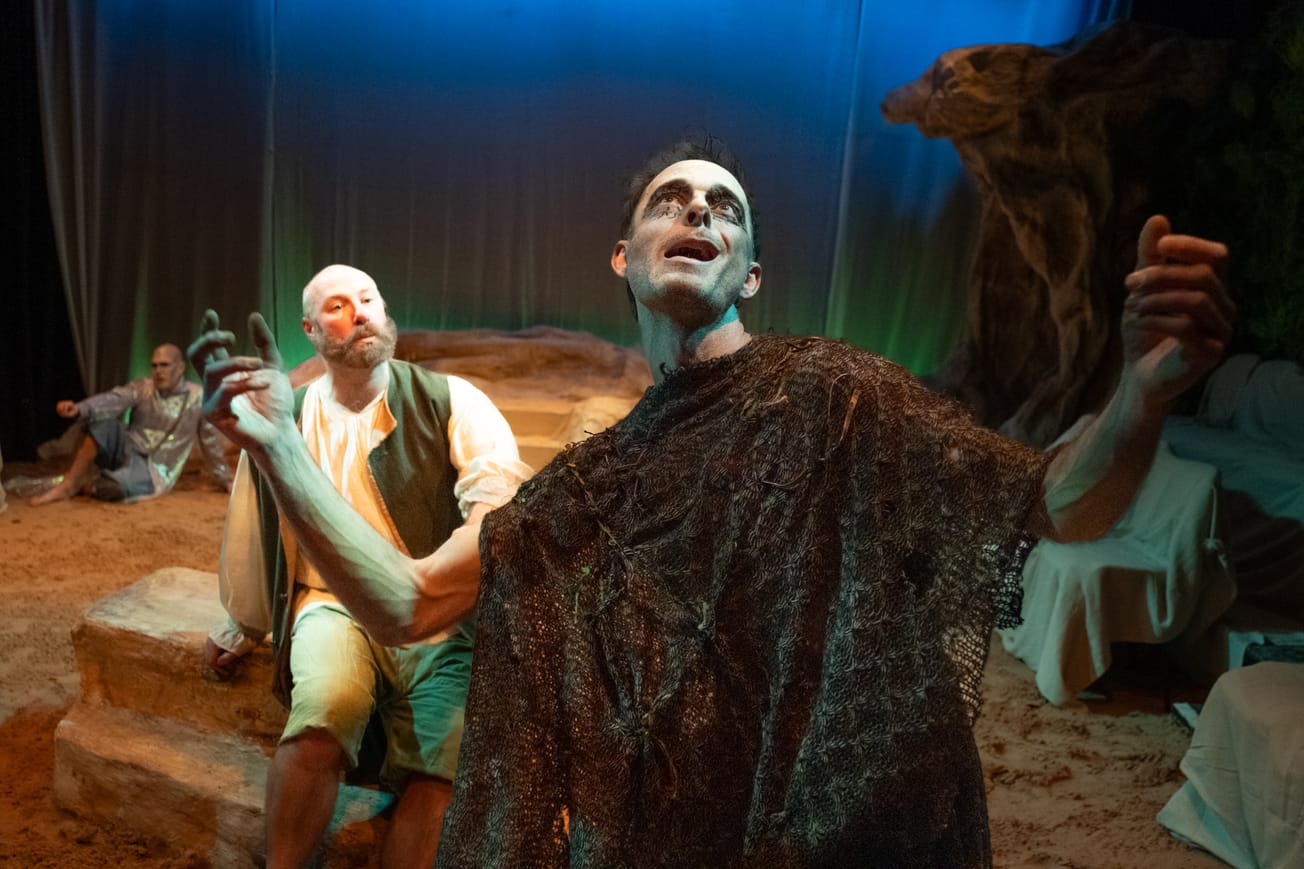By Cameron Henderson, Third Year English
“It’s true, it’s true, it’s true” rings throughout the auditorium, but what difference does it make if no one is listening? Cameron Henderson reviews the award-winning court drama by Breach Theatre.
Based on surviving court transcripts from the 1612 trial of Agostino Tassi for the rape of Baroque painter Artemisia Gentileschi, Breach Theatre’s latest production re-contextualises the trial that gripped Renaissance Rome in a modern setting to make us ask the question, how much has really changed? The mode of the play is tragedy, but in both form and content, despite torturous pressure, it refuses to bend to convention. Weaving into the narrative representations of women from throughout Classical culture, Breach’s work blends history and myth to produce a tragicomedy which satirises the male gaze upon which our culture was founded.
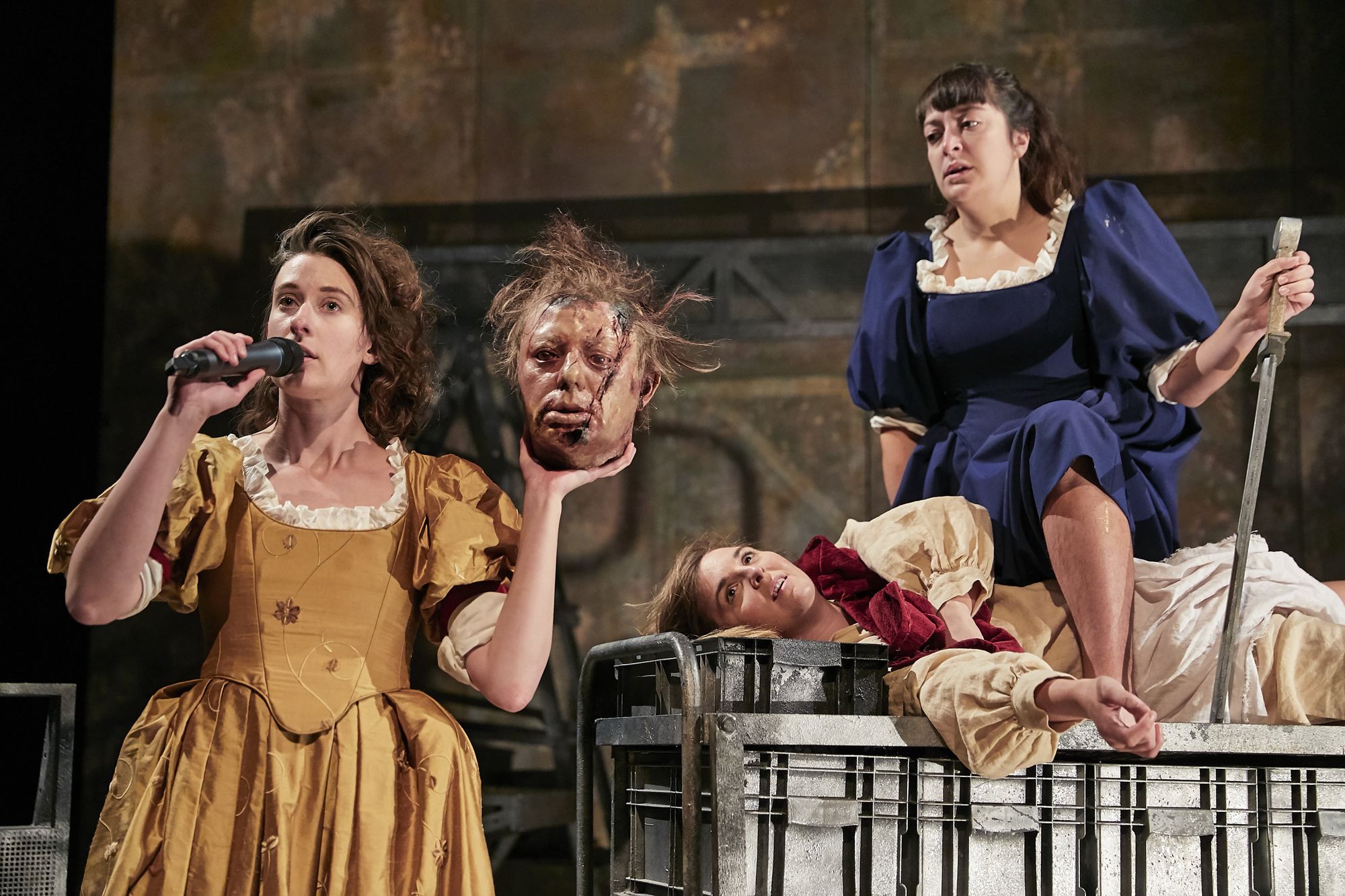
The work brilliantly plays with the psychology of the reader in a manner that is enabled by having an all female cast. As a result, moments of awkward humour are able to bathetically undercut the seriousness of the play’s graphically sexist subject matter. In doing so, Breach tie their script into a strong tradition of women’s writing, stretching back to the likes of Stevie Smith and Emily Dickinson, in which humour is used to represent the subaltern experiences of women which are not granted articulation in mainstream culture.
This is a play about consent and how pervasive patriarchal dominance has attempted to blur its boundaries. As such, Breach have ingeniously paralleled Roman society with our own to convey the disturbing message that we continue to live in an era in which men in positions of authority regularly abuse their power to exploit, shame and silence women. But as the play makes clear, this is not how it has to be.
It is so easy to trivialise the drama as the tragic events of a bygone era, but to do so is to hide behind the veil of ignorance and serves only to perpetuate the injustice experienced by so many women to this day. Indeed, according to a recent Guardian report, ‘Last year fewer than one in 65 reports of rape (1.5%) resulted in a charge or a summons, for a total of only 886 in 2018-19’. This comes at a time when rape claims dealt with annually by police in England and Wales have risen by 61% over the last four years.
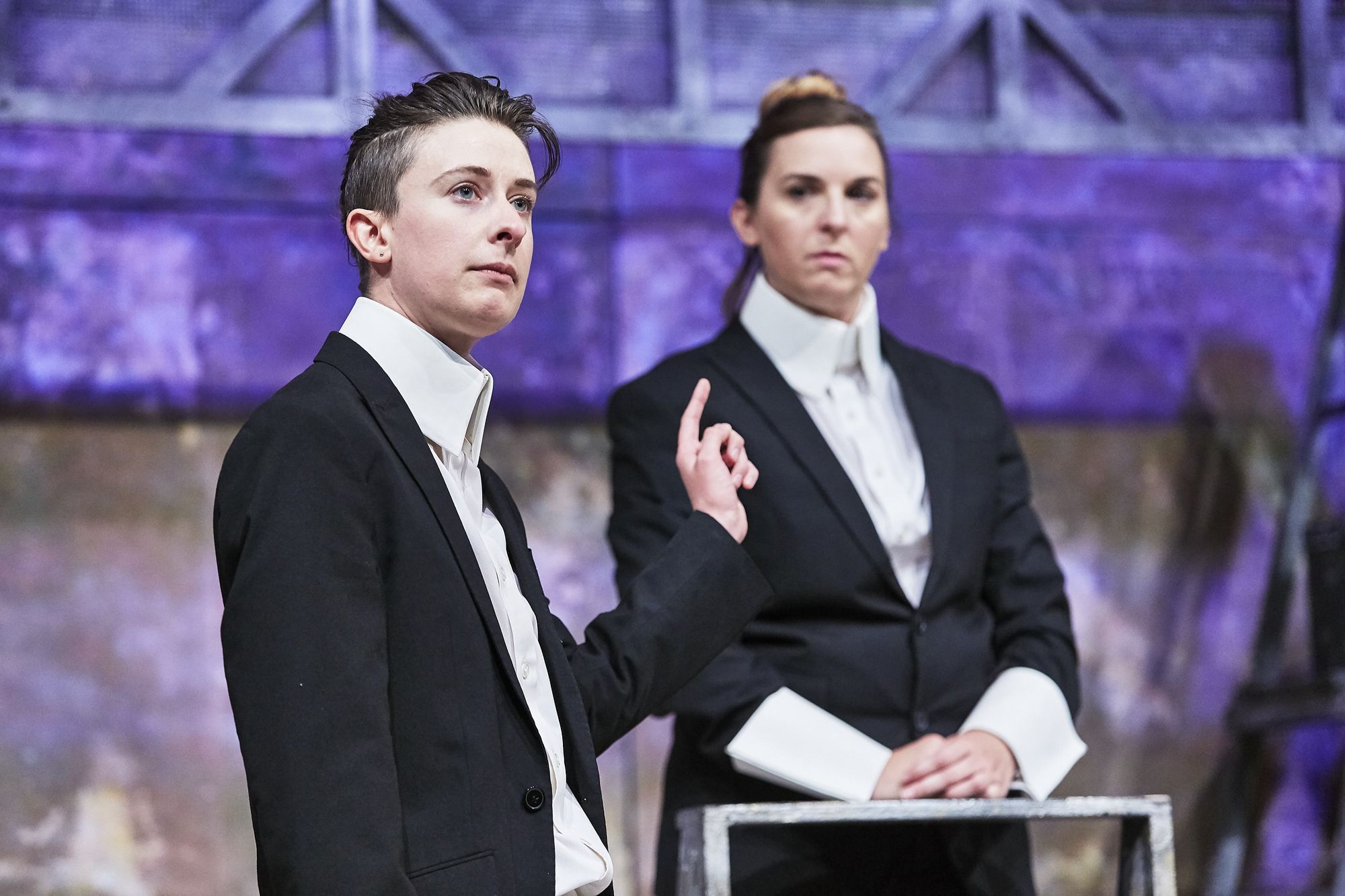
Ellice Stevens produces a tour de force performance in her role as Artemisia Gentileschi. Cutting the figure of a wildly out of context Me Too protester, Stevens beautifully juxtaposes the vulnerability of Artemisia’s situation with a steely resilience which she then transitions into brave and absurd comedy. If there are any weaknesses to this play, I would say they are to do with the script which occasionally lacks the expressivity that the emotionally and politically charged action demands. It might have also been interesting to gain greater psychological insight into Agostino’s (Sophie Steer) manipulation of Donna Tuzia (Kathryn Bond); however, Steer’s representation of Agostino’s physical and verbal dominance is as captivating as it is sinister.
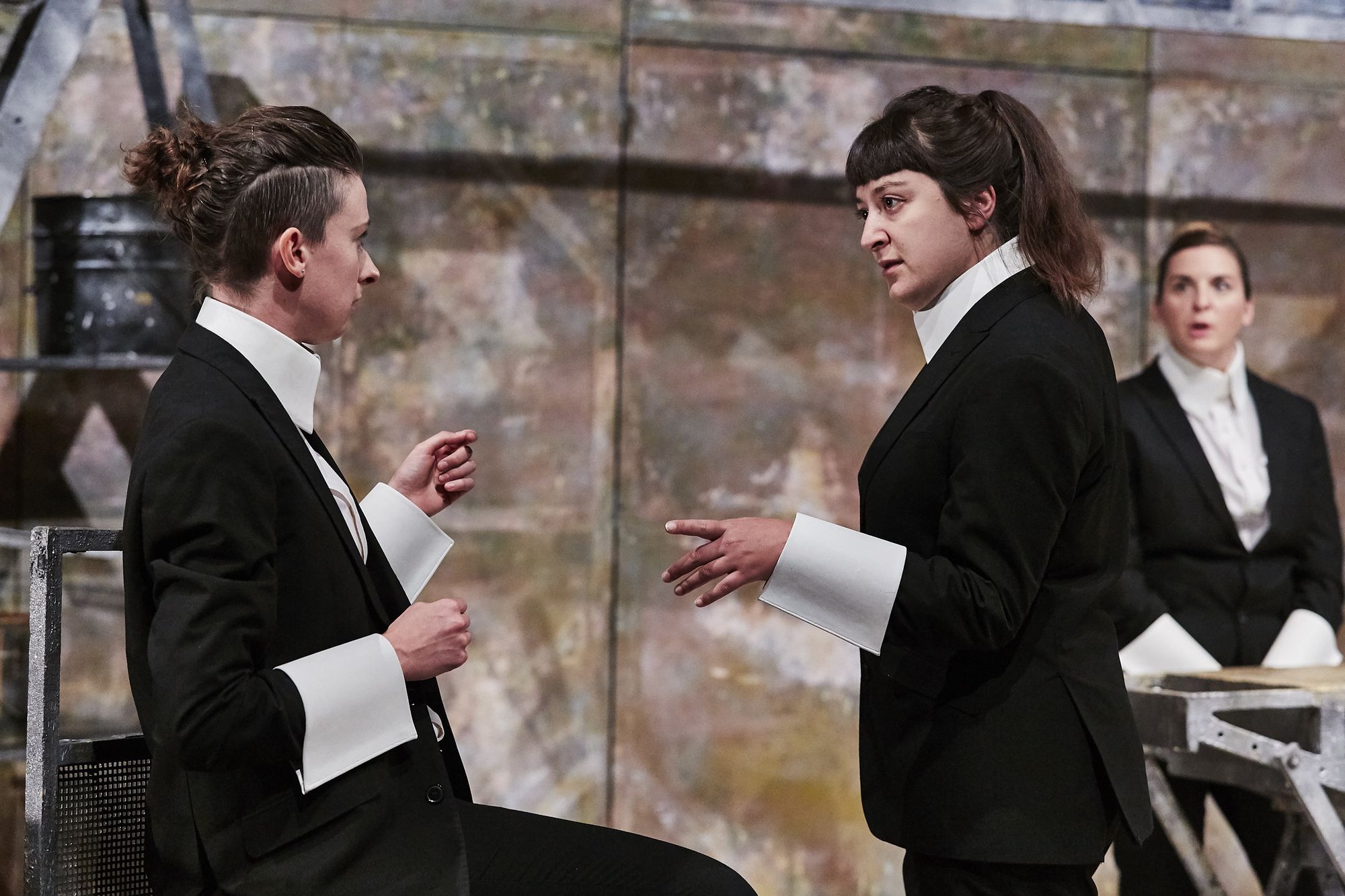
An echo chamber through time, this gender-redefining, myth-remaking and culture-reconstructing drama is both hard-hitting and hilarious. It encourages the viewer to reflect upon the gendered power structures of our society and acts as a paean to female-self determination, as Artemisia firmly states, ‘As long as I live, I am going to have control over my being’. The play ends with the assured knowledge that gender inequalities can be overcome, and while it may take time, the world is beginning to listen.
★★★★
Featured image /
Breach Theatre

